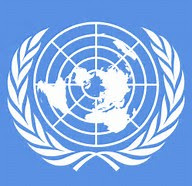 The government ministers were facing a new infectious disease outbreak. The mysterious virus was sickening and killing people with alarming speed. Some patients had to be placed on ventilators to help them breathe. The new virus seemed resistant to antibiotics and antiviral medicine.
The government ministers were facing a new infectious disease outbreak. The mysterious virus was sickening and killing people with alarming speed. Some patients had to be placed on ventilators to help them breathe. The new virus seemed resistant to antibiotics and antiviral medicine.
Within a week, officials had closed a major hospital and schools and quarantined thousands of people. Fear and panic spread quickly as people in neighboring countries became infected and died.
That scenario was part of a pandemic simulation held during the World Bank’s annual meeting in Washington this month. It’s not the kind of event that people would typically associate with the World Bank. But it’s the fourth such exercise the bank has helped organize in the past year, reflecting what experts say is the growing awareness outside the traditional global health sector of the increasing threat and economic disruption posed by a global pandemic.
The chaotic and “horrendously inefficient” early response to the 2014 Ebola epidemic in West Africa was the catalyst for the simulations, said Tim Evans, senior director for health, nutrition and population at the World Bank. READ MORE